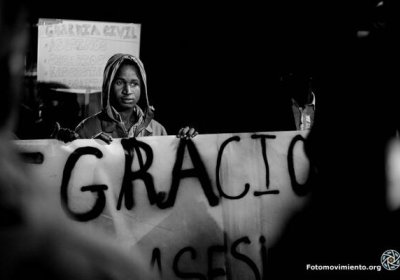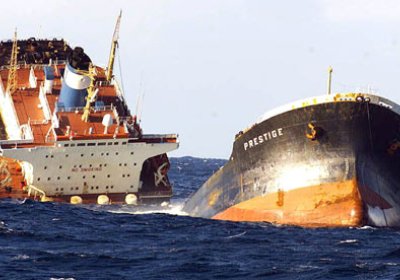If anyone can get the different forces of the Catalan left to unite in support of a common cause, it is Ada Colau. The spokesperson of the anti-eviction Mortgage Victims Platform (PAH) until early May, Colau is almost certainly the most popular and respected social activist in the Spanish state.
On June 26, Colau launched Let’s Win Barcelona platform for next year's May municipal elections in the Catalan capital.
Barcelona
The five seats and 7.9% won by the new Podemos (“We Can”) ticket in the May 25 European election was an earthquake in Spanish politics.
Podemos was inspired by the indignado movement that exploded across the Spanish state in 2011 against austerity and for “real democracy”. The movement was driven by mass popular assemblies, which provided a striking counter-point to the frequently corrupt “politics as usual”.
An old truism says that in periods of crisis, politics speeds up.
That is being strikingly confirmed in the Spanish state after the June 2 abdication of King Juan Carlos. So too is its corollary ― that institutions that seemed solid and long-lasting suddenly look out-of-date and fragile.
As news spread of the abdication of the Spanish king Juan Carlos on June 2, a strange rustling sound could be heard across Barcelona. Hard to work out at first, it soon became clear what it was. It was the city — the capital of Catalonia — laughing.
In the city’s thousands of bars, people were hooting with glee at the wave of tweets that the king’s decision to abdicate in favour of his son, Felipe, was provoking. Probably the favourite in my local bar of young and old unemployed, read: “With Mariano Rajoy [Spanish prime minister] in charge, even the king gets to lose his job.”
The European parliamentary poll on May 25 was dominated by the victories of the xenophobic and racist National Front (FN) in France (26%, 24 Members of the European Parliament) and the United Kingdom Independence Party (UKIP) in Britain (26.8%, 24 MEPs) — triggering a fit of mainstream media angst.
The angst is understandable. Five years after the 2009 European elections, the political basis for the European Commission’s austerity drive has been severely weakened. This has rendered “governance” of the 28-member European Union even more difficult.
Far right strengthens
During the six years of economic crisis in Europe, its elites have not just attacked the living standards of workers, unemployed and poor. They’ve also been engaged in a three-and-a-half year scrap among themselves.
Their fight is over a financial transactions tax (FTT), first mooted by the European Commission (EC) in October 2010 for all 28 members states of the European Union. It was finally agreed to in January last year by 11 Eurozone members ― Belgium, Germany, Estonia, Greece, Spain, France, Italy, Austria, Portugal, Slovenia and Slovakia (the “EU11”).
Aims
All political forces in Spain are now straining to adjust to the huge 1 million to 2 million-strong March for Dignity demonstration in Madrid. On March 22, the march greeted the protest columns that had converged on Spain's capital from 12 outlying cities and towns over the previous week.
The enormous success of this initiative is still sinking in. How come an initiative that began outside the mainstream union confederations, the Workers Commissions (CCOO) and the General Workers Union (UGT), could mobilise so many people and eventually force them to declare their support?
At quarter to six on the morning of February 6, in a wood on the Moroccan side of the border with the Spanish north African enclave Ceuta, about 300 asylum seekers met to try to cross the six-metre high razor-wire fence seperating the two countries.
Victories are rare in the ongoing struggle against the sell-off of public services in southern Europe. So when one occurs as big as the recent defeat of the Madrid regional government’s plans to privatise hospital and community health centre management, it should be enjoyed to the full.
The crowning moment in the 15-month-long battle to keep administration of six hospitals, four specialist centres and 27 community health centres in Madrid in public hands came on January 27. That afternoon, a gloomy regional premier, Ignacio Gonzalez, announced the suspension of the privatisation.
Is that a faint glimmer light at the end of the European economic tunnel? Or is it just a bunch of conservative politicians brandishing torches and yelling: “Look, a light at the end of the tunnel”?
The “Light-At-The-End-Of-The-Tunnel” mantra is a vital part of conservative government strategy in depressed Portugal, Greece, Ireland and Spain (the European “periphery”).
Every skerrick of non-disastrous economic news gets boosted as proof of a coming resurrection ― and one more reason why people should forget about revolt in the streets or ballot box.
Eleven years to the day after the crew of the 80,000 tonne oil tanker Prestige heard the huge bang that marked the start of its break-up and of Europe’s most devastating oil spill, a high court panel in the Galician city of A Coruna delivered its verdict in the case on November 13.
Who was guilty of an environmental catastrophe when the tanker broke in two and spilled 63,000 tonnes of sticky, sulphurous fuel oil along 2900 kilometres of Spain’s and France’s Atlantic coast?
If you were asked to pick a TV network in Spain least likely to be occupied and managed by its workers, you would probably choose Radio and Television Valencia’s (RTVV) Channel Nine.
Worker control over this mouthpiece for the corrupt People’s Party (PP) government of Valencia would seem about as likely as worker control of Australia's Nine Network. Yet, at the time of writing, in response to a bid to close down the station, RTVV Channel Nine is being run by its employees.
- Previous page
- Page 11
- Next page











